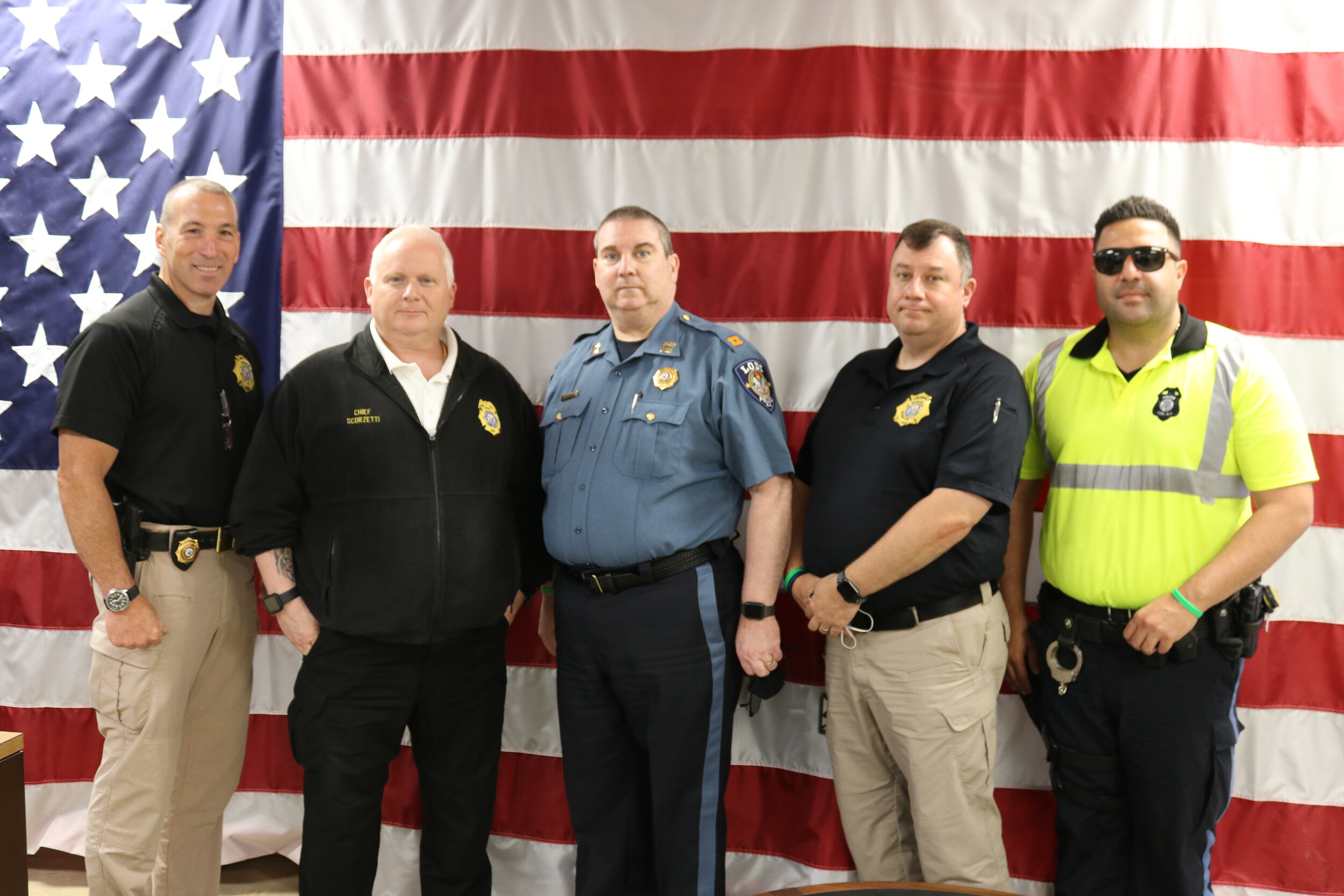Strength: Captain Salerno shows vigor & courage in cancer battle
/By Catherine Angel
LODI, NJ - Police Capt. Robert Salerno has served the Lodi community for over 30 years. He has consistently demonstrated his commitment to the community not only through his work as a police officer, but also by serving on the Hasbrouck Heights Board of Education for three years, and with the Hasbrouck Heights Fire Department for four years. Capt. Salerno also volunteered as a baseball coach and lent a helping hand to the Junior Aviators football program. He is happily married with three children.
Recently, Salerno’s simple life was turned upside down with the unfortunate diagnosis of Stage 4 liver cancer. However, his story is not one of sympathy — it is a testament to his strength and courage. While faced with tremendous adversity, Salerno continues to work, and maintains his normal routine, keeping a positive outlook while many other people would have crumbled.
Capt. Salerno is a true inspiration — a stable ship in a storm, and a role model for everyone facing challenges. Blue Magazine wishes Capt. Salerno much success ahead as he continues the fight.
Catherine Angel: Tell us about yourself and your career.
Capt. Salerno: I've been a police officer here for 32 years with the police department. I was hired on January 2nd, 1990. I was promoted to the rank of sergeant, January 4th of 1999. I was promoted to lieutenant in 2014 and last year I was promoted to the rank of captain. I've been assigned to patrol for 19 years before currently being assigned to the records division where I'm in charge of records. I process firearms applications. I do a multitude of other things from grants to telephones. I assist with the IT stuff. So, I have a broad spectrum of responsibilities that I do here.
What was the proudest moment in your career?
I think probably the proudest moment of my career was when I attained the rank of captain last year.
Have you had any negative experiences?
There's nothing really negative. There are things that come with the job that cause you to go on—negative things that affect you for a while. All cops deal with many of the negative aspects of our careers. But, you know, you deal with them and you move on and work through them.
Can you tell us about your health condition?
Sure. Recently I went to the doctor because I was having some pain in my side. He sent me to the hospital for a series of tests. And he told me that I had Stage 4 liver cancer. I'm currently being treated up at Sloan Kettering for liver cancer. I have a few spots on my lungs that metastasized from the liver. So that kind of created a little bit more of a situation than I was really expecting. And when I received the news, I was actually devastated and so is my wife. I couldn't believe it and it's still hard to process it because I'm still trying to think, you know, ‘how?’ and ‘why?’ and ‘where?’
Can you take us back to the day of your diagnosis? What was that experience like?
Well, I thought I was having some pain in my side here by my ribs. And, at first, I had thought that I had pulled a muscle. But my doctor said there may be something more to it. So he poked around my abdomen and said something didn’t feel right. He said I needed further tests and ordered a series of them at the hospital. So I went to the hospital on a Tuesday afternoon around four o'clock, after I left work. I had a CAT scan of my liver, my abdomen, and my chest to see what was going on. After I was in the emergency room for a number of hours, they came back and they told me they were going to admit me overnight, and the next day my doctor wanted to come see me around six o'clock in the morning. The next morning my doctor came knocking on my door, kind of woke me up, and said the news wasn’t good. I've developed a relationship with my doctor that is very good so he was straight with me and said I have liver cancer. After that, we did a biopsy. We did a couple of other tests including an MRI of my brain to make sure the cancer didn’t go to my brain. My doctor ordered more tests and told me we’re going to get through this. He set me up to go to Sloan Kettering for treatments. I remember he asked me if I wanted to call my wife. I said, I really didn't think I could do it so he called my wife and informed her of my condition. And after that, you know, we dealt with it. And that's the morning I spoke with my chief, who also gave me hope that we will get through this. He said 'we're going to work through it.' And that's exactly what we're doing now. He told me I have the support of everybody here. Also, everyone in my family has been extremely supportive. The number of friends I have supporting me is unbelievable. The outlets I have right now make it so much better for me to deal with what we're dealing with.
You mentioned something about support from the officers here. Can you elaborate on that support?
Sure, they call me constantly. There is a sergeant who works in my office who continually hounds me to make sure I drink water, making sure I eat something. He’s a wonderful friend. Everybody that I work with here, including the guys that are behind me here, they constantly reach out. They check to see how I am doing and how they can help. How can they help my family. And for me, that's huge. Even with the support from the people in the borough hall that know that I have this. They ask what they can do to help. ‘What do you need?’ ‘Can we get your food?’ ‘Can we get you this?’ ‘Can we take you for your treatment?’ Just those things, in general, are like amazing things that when the chips are down, you see who actually comes out and who is going to help you. And for everybody here, we have 46 cops, and they will do whatever they have to do to help me.
Is there a message you want to tell your kids today?
Well, I actually have three children. One daughter, who lives in South Carolina and is currently a dialysis nurse, and I’m constantly on her to ‘make sure you take care of yourself ,’ ‘make sure you're doing what you have to.’ I have another son who lives in South Carolina. He's a state trooper. So I constantly tell him some of the things that I just told you. ‘Be on the street and be respectful to the people.’ ‘Do what you have to do again.’ He was a football player. He played college football, great high school football, so he knows how to maintain his health. So he's always doing it. I have another son who lives in Pennsylvania who is an IT guy. He's a part-time college football coach. And I tell him the same thing. You know, ‘make sure you take care of yourself— go for walks, lose weight, eat a good diet’, so they never end up in the situation that I am in. And again, they're all far away, but I talk to them every day, sometimes four times a day, so we constantly have communication.
What do you want to be remembered for?
I have been here for 30 years. My biggest legacy is to know that when I do leave here, I leave the place the way I wanted it to be. And the people that I worked with will always remember me. And, you know, I think, ‘oh, yeah, he did that’ or ‘he put this into place.’ So that's important to me.













